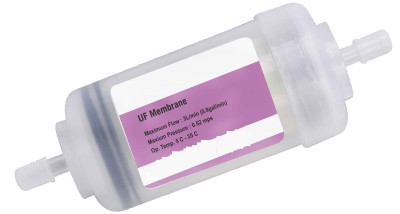Water Purifier Spare Parts
1 product
About Water Purifier Spare Parts UF Membrane
Why is UF Membrane Important?
The UF membrane is a vital component in a water purifier, responsible for removing various impurities and contaminants from the water. It serves as a reliable barrier, ensuring that harmful substances, including bacteria, viruses, suspended solids, and colloidal particles, do not pass through and contaminate the purified water. The UF membrane acts as an additional layer of filtration, enhancing the efficiency and effectiveness of your RO system.
Functioning of UF Membrane
- Pore Size: The UF membrane consists of tiny microscopic pores, typically ranging from 0.01 to 0.1 microns in size. These pores are small enough to prevent the passage of contaminants, while allowing water molecules to pass through. This mechanism ensures that only clean and purified water flows out, while larger particles and microorganisms are effectively trapped.
- Physical Filtration: UF membrane filtration is based on physical sieving. As water passes through the UF membrane, the pores act as a sieve, selectively trapping impurities based on their size. Suspended solids, sediments, bacteria, viruses, and even some dissolved organic compounds are effectively removed, resulting in clearer and safer drinking water.
- Low Pressure Operation: Unlike RO membranes, UF membranes operate under lower pressure, making them more energy-efficient. This allows for easier filtration, requiring less energy consumption and reducing the strain on the overall water purification system.
Choosing the Right UF Membrane
When selecting a UF membrane for your water purifier, consider the following factors:
- Compatibility: Ensure that the UF membrane is compatible with your water purifier model. Refer to the manufacturer's guidelines or consult with our experts to identify the correct UF membrane specifications that match your system.
- Pore Size: Different UF membranes have varying pore sizes, which determine the size of contaminants they can effectively filter. Consider the specific impurities you want to eliminate from your water supply and choose a UF membrane with an appropriate pore size for optimal filtration.
- Quality and Certification: Invest in a high-quality UF membrane from reputable brands or authorized suppliers. Look for membranes that are certified by recognized bodies for meeting the required standards of water purification. This ensures that you're getting a reliable and efficient product.
- Lifespan and Maintenance: Consider the lifespan and maintenance requirements of the UF membrane. Some membranes require periodic cleaning or replacement to maintain their filtration efficiency. Choose a membrane that offers a balance between filtration performance and ease of maintenance.
Maintenance and Care
To prolong the lifespan and performance of your UF membrane, follow these maintenance tips:
- Regular Cleaning: Depending on the water quality and usage, clean the UF membrane at regular intervals as recommended by the manufacturer. This helps remove accumulated impurities and ensures consistent filtration efficiency.
- Pre-filtration: Use a pre-filter system to remove larger particles and sediments before the water enters the UF membrane. This reduces the load on the membrane and extends its lifespan.
- Avoid Chemical Exposure: Avoid exposing the UF membrane to harsh chemicals or disinfectants, as they can damage the membrane's integrity and affect its filtration capability. Use only recommended cleaning agents or consult the manufacturer for appropriate maintenance procedures.
- Monitor Performance: Regularly monitor
Frequently Asked Questions
Find answers to common questions about our products
